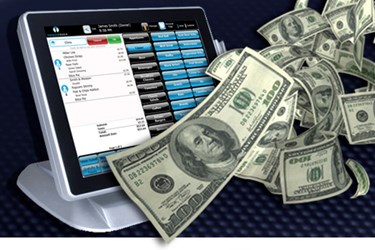It's Time To Respect The 'Free' POS Model
By The Business Solutions Network

It's hard to believe that it's going on 5 years since Jared Isaacman, CEO of Harbortouch (then United Bank Card), received boos from some of the dealers in the crowd at RSPA RetailNOW 2009 as he tried to make an announcement (fast forward the clip to the 0:27 mark for the vegetable throwing) that included the concept of free POS hardware and software.
It's now 2014. As we wrap up our February issue, which includes a feature article on a NYC-based VAR doing quite well selling Harbortouch, I thought about how many resellers we've spoken with in the past couple years who've embraced the Harbortouch model of "free" POS. The booing still exists, primarily from companies in the channel that made their livings off of high margin sales, but I hear a lot more cheering than anything else nowadays.
I'm sure many VARs added Harbortouch simply to compete and have a low-cost solution to offer customers. What's particularly interesting to me is that the Harbortouch model of a hardware and software subscription is the foundation of a recurring revenue-based business model that many of today's VARs are (or should be) looking at to increase profitability. Indeed, whether VARs on this model knew it or not at the time they signed, subscription-based sales also set them up to make more money in the long run while increasing their profitability.
I can hear some of you screaming now. Not every customer wants to lease or rent equipment. Can't argue that. But that doesn't mean you shouldn't be offering it at all. You should still be trying to sell as many customers as you can on the model. Recurring revenue is good.
And, true, your company might be structured (i.e. too many employees, expenses too high, resources in the wrong place, etc.) in a way that the monthly revenue you get from selling via this model won't work for you. Sadly, you're not alone in this. Long-established dealerships were designed and grew over the years for technologies and a way of business that won't be sustainable in the future. Ironically, small start-ups and smaller VARs that don't have historical reference and a lot of overhead are perfect for a subscription model.
I don't envy the leaders of large VARs who face many tough decisions concerning the reduction of expenses and changing their line cards to accommodate the expectations of retailers. Will there always be exceptions to this trend? Absolutely. Are you one of those exceptions? Better be sure. If you're not, stop reading. You've got a lot of work to do.
